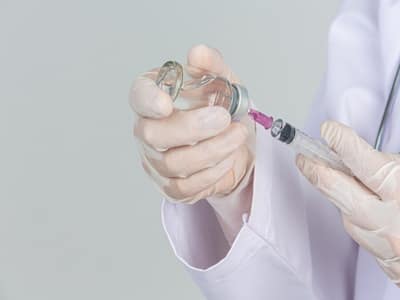Don’t Miss Out on the Latest Updates.
Subscribe to Our Newsletter Today!
Mumps Outbreak Grips Kerala: Check For Symptoms, Prevention Strategies, Transmission

Getting vaccinated is the best way for a person -- adult and child -- to reduce their risk of getting mumps. It is usually a part of a combination vaccine that protects against three diseases: measles, mumps, and rubella (MMR).
There has been an outbreak of mumps in Kerala, with the state reporting 190 cases in a single day on Sunday, March 10, 2024. According to news reports, in March alone, there have been 2,505 cases of the viral infection. Per data from the Kerala health department, a total of 11,467 cases have been reported in a little over two months this year. Officials from the Union Health Ministry have reportedly confirmed the outbreak and alerted the National Centre for Disease Control in the state.
What Are Mumps?
According to the Centers for Disease Control and Prevention (CDC), mumps is a contagious disease caused by a virus. It starts with a few days of fever, headache, muscle aches, tiredness, and loss of appetite. In most people, it is followed by a swelling of salivary glands (often referred to as 'parotitis' when the parotid gland that is located in front and below the ear swells). It causes puffiness in the face -- mainly the cheeks -- along with a tender, swollen jaw.
Signs And Symptoms Of Mumps
Apart from the aforementioned symptoms, the CDC states that some other symptoms that may begin a few days before parotitis include:
Also Read
- Fever
- Headache
- Muscle aches
- Tiredness
- Loss of appetite
The symptoms usually appear 16-18 days after infection, but this period can range from 12-25 days after infection. While some people have mild symptoms (like a cold) or no symptoms at all, in some rare cases, mumps can cause severe complications. The positive part is that most people with mumps recover completely within two weeks.
Transmission Of Mumps
Mumps is a contagious disease that is caused by a virus. It spreads through direct contact with saliva or respiratory droplets from the mouth, nose, or throat of an infected person. Transmission routes are via:
Coughing, sneezing, or talking.
Sharing items that may have saliva on them, such as water bottles or cups.
Participating in close-contact activities with others like playing sports, dancing, etc.
It should be noted that an infected person can spread mumps from a few days before their salivary glands begin to swell to up to five days after the swelling starts. The CDC advises a person with mumps to limit their interaction with others.
Complications of Mumps
Mumps can occasionally cause complications in adults:
- Inflammation of the testicles, which may lead to a decrease in testicular size (testicular atrophy).
- Inflammation of the ovaries and/or breast tissue (mastitis).
- Inflammation of the pancreas (pancreatitis).
- Inflammation of the brain (encephalitis).
- Inflammation of the tissue covering the brain and spinal cord (meningitis).
- Deafness
Mumps Vaccination
Getting vaccinated is the best way for a person -- adult and child -- to reduce their risk of getting mumps. It is usually a part of a combination vaccine that protects against three diseases: measles, mumps, and rubella (MMR). Children should get two doses of MMR vaccine: the first at 12 through 15 months of age; the second dose at 4 through 6 years of age.
In Kerala, most of the cases are being reported from the Malappuram district and other parts of north Kerala, officials say.


